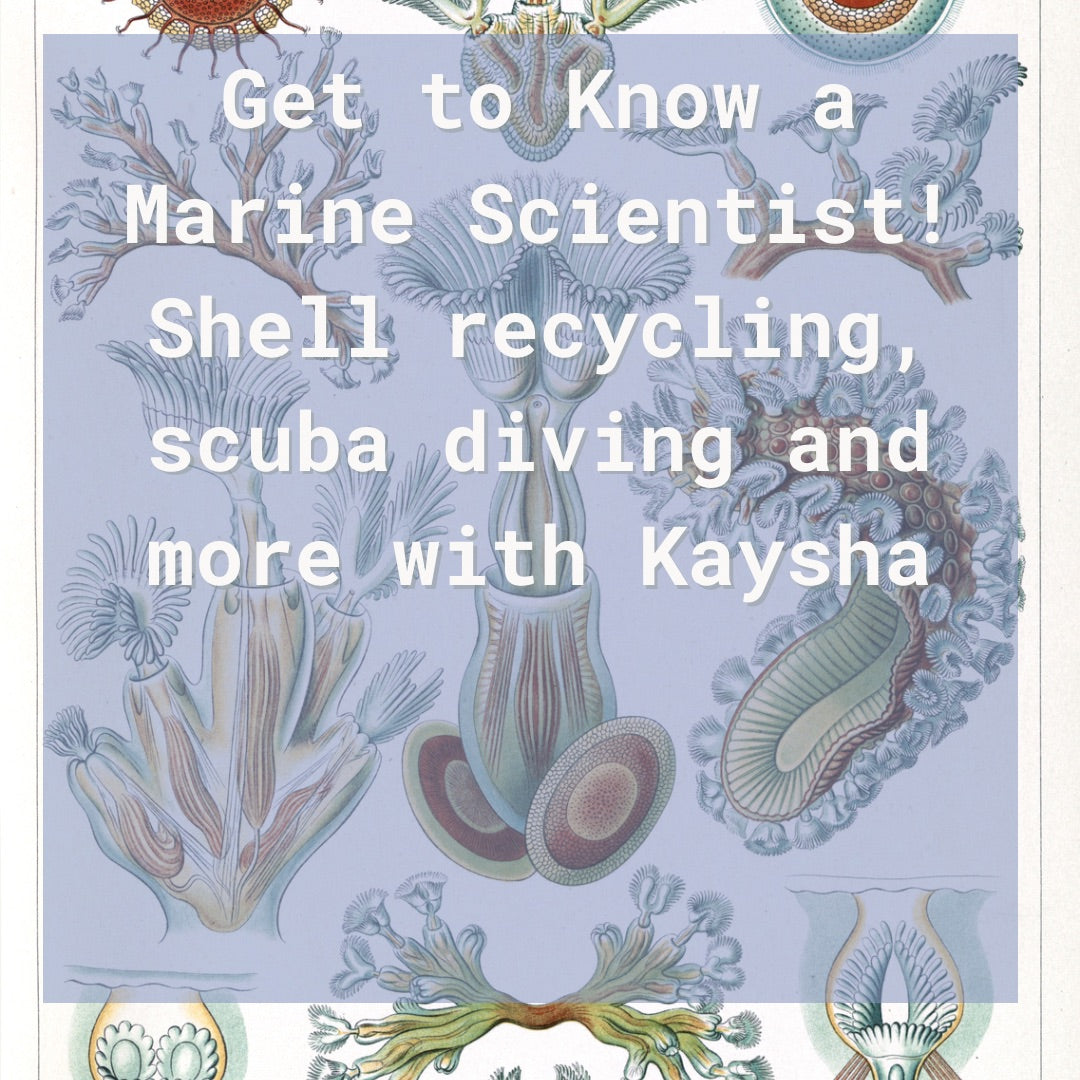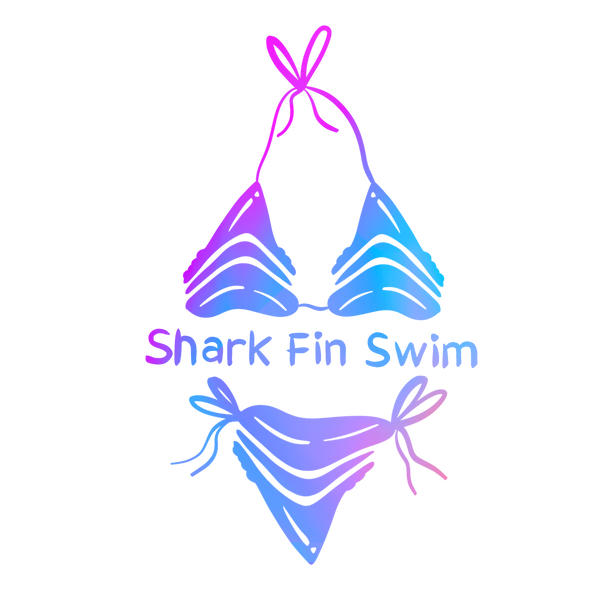
Get to Know a Marine Scientist: Oyster Shell Recycling with Kaysha
Share
Get to Know a Marine Scientist!
Welcome to a new blog series with Shark Fin Swim. I’m Hope, the founder and ocean illustrator behind Shark Fin Swim. Our small business helps raise awareness for ocean conservation through our hand drawn colorful prints perfect for ocean lovers. Using eco friendly materials and production practices we are bringing ocean advocates a more sustainable option for swimwear. As a biologist and purpose driven small business owner this blog series is going to give you an inside look of what it’s like to be a Marine Scientists Biologists, Diver, Professional mermaid and so much more! Let’s meet our scientist for this week!

Follow Kaysha on Instagram @ocean_kaysh
Can you introduce yourself and tell us a little bit about what you do?
My name is Kaysha and I am a marine scientist. I have a BSc in Biology with a concentration in marine biology and a MSc in marine biology. I currently work as a Marine Restoration Director at a nonprofit where I work on a living shorelines project. We restore native Olympia oysters, eelgrass, and native marsh plants in wetland habitat to combat the impacts of climate change like sea level rise and coastal erosion.
What is shell recycling and how does it relate to sustainability?
Shell recycling is an oyster recycling program that takes donated oyster shells from restaurants and repurposes them for native oyster restoration programs in Southern California. This initiative helps reduce food waste, lower program costs, and engage the local community in marine science projects. Not only are we using these recycled oyster shells to build oyster beds but it also diverts oyster shells from ending up in the landfill.

Photo by Ben Stern on Unsplash
You frequently do beach cleanups totaling up over a 1,000 lbs in 2024, what are some of the most common items you’ve found?
Common items include plastic bottle caps, cigarette butts, single-use plastic takeaway cups, plastic straws, and surprisingly a lot of shoes.
Do you have any tips you’d want to share with someone who wants to live more sustainably but isn’t sure where to start?
Start small. Sustainable living is not all-or-nothing, especially in a society where it is impossible to be perfectly sustainable. Do what you can for the planet, and start to make sustainable changes as you go. Every little bit counts!
What’s one of your least favorite job duties as a marine biologist?
My least favorite job duty is permitting! Permitting can take a very long time, during a time when it feels like the impacts of climate change on the ocean are so dire. I wish permitting agencies worked more quickly when it came to projects that work to restore the ocean.
As a PADI dive master and marine biologist did you have an interest in scuba diving before your marine biology career?
I received my open water certification in 2018 while I was obtaining my bachelor’s degree. I always wanted to scuba dive as a kid (and ever since I wanted to be a marine biologist), and once I had the means and a better understanding of what it could do for my career, I dived/dove in (pun intended) as soon as I could!

Photo via @ocean_kaysh
Less than 50% of scuba divers are women, what advice would you give someone to try and convince them to get certified?
Scuba diving opens up an entire new world. For anyone interested in diving, I would say find community. Women in diving is one of the best communities I am a part of. Everyone is so accepting, encouraging, and supportive and truly understands what it means to be a woman scuba diver. They help push you to continue your passion for the underwater world, while understanding the challenges of being a woman diver.


